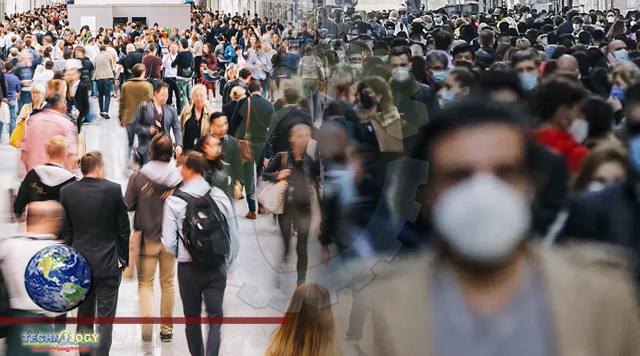So why are cases increasing and why does vaccine star Prof Sir Andrew Pollard say herd immunity for Covid-19 is “mythical”?

The Office for National Statistics Covid infection survey estimates that, either through vaccination or infection, an extraordinary 94% of adults now have antibodies to Sars-CoV-2.
So why are cases increasing and why does vaccine star Prof Sir Andrew Pollard say herd immunity for Covid-19 is “mythical”?
The reproduction number “R” is the average number of people infected by someone infected with Sars-CoV-2. If everyone in the population were susceptible, as in the start of an epidemic, this is labelled R0 (the basic reproduction number). For “vanilla” Sars-CoV-2, R0 was about three; with the Delta variant, it is about seven.
Suppose that among these seven people who would – on average – be infected, six were immune, the virus would only get passed on to one new person and the epidemic would stop growing. In this scenario, R would be effectively one. So, in theory, when 1 – 1/R0 of the population are immune, we reach herd immunity, which for Sars-CoV-2 is 6/7 = 86% of the population.
So what’s the problem? First, the neat formula does not describe real life: immunity is not uniformly spread and people do not mix evenly. Second, including children, the proportion of the population with antibodies is likely to be less than 94%.
Third, the formula requires sterilising immunity: stopping infection in potential hosts. For this kind of virus, vaccinations reduce but do not eliminate the risk of infection, subsequent transmission and severe disease.
Sars-CoV-2 differs from measles, which has a very high R0 of about 16, but for which full vaccination or survived infections probably bestow lifelong immunity. Of course, measles can still spread when those lacking immunity are close, such as when young people who had not been vaccinated following the MMR scare in the early 00s grew up and started gathering at music festivals.
Sars-CoV-2 is becoming endemic, meaning continued recurrent outbreaks, especially in communities with low levels of immunity. We shall all remain at some risk, which is a difficult message for those with extreme anxiety about Covid-19. But while herd immunity may be an unattainable goal, every step towards it helps.
- David Spiegelhalter is chair of the Winton Centre for Risk and Evidence Communication at Cambridge. Anthony Masters is statistical ambassador for the Royal Statistical Society
Originally published at The guardian